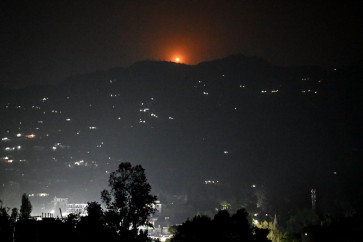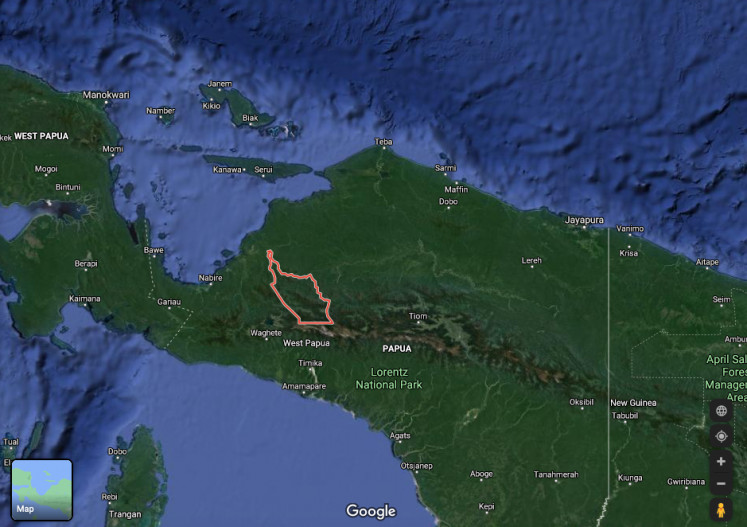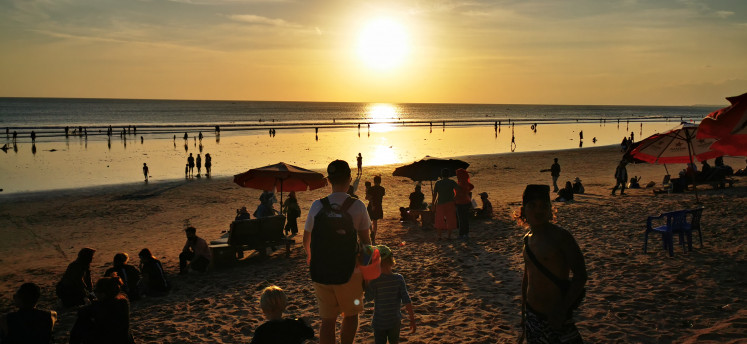'Dark Tourist' A journey through unorthodox holiday spots
Is Netflix’s new travel-documentary series Dark Tourist edgy entertainment or does it take an irreverent view of others’ misery and cultural traditions?Hosted by David Farrier, a New Zealand journalist who also co-directed 2016’s intriguing documentary Tickled (which pulled surprising depth out of the world of competitive tickling), Dark Tourist focuses on the trend of dark tourism, in which vacationers visit unorthodox spots for pleasure — or pleasure through pain, in some cases
Change text size
Gift Premium Articles
to Anyone

Is Netflix’s new travel-documentary series Dark Tourist edgy entertainment or does it take an irreverent view of others’ misery and cultural traditions?
Hosted by David Farrier, a New Zealand journalist who also co-directed 2016’s intriguing documentary Tickled (which pulled surprising depth out of the world of competitive tickling), Dark Tourist focuses on the trend of dark tourism, in which vacationers visit unorthodox spots for pleasure — or pleasure through pain, in some cases.
The eight-part series takes Farrier around the world — America, Japan, Africa, Europe, “the Stans” and to Southeast Asia including Indonesia (Toraja in South Sulawesi to be exact). They take a fish-out-of-water perspective that similar series have done before. Whether they do so successfully varies in each episode.
Though Farrier manages to balance his droll sense of humor (often very funny in its ability to be improbably subtle and confrontational toward interview subjects of skewed morality) with the more-conventional TV show host’s roundup of what’s going on on-screen (plenty of acceptable platitudes as the end credits arrive), there is no denying the “yikes-look-at-this-weird-person/habit/perspective” aspect that is supremely difficult to balance in shows such as these.
Shows such as Anthony Bourdain’s No Reservations, which managed to be entertaining yet respectful to its surroundings, are not a given but a miracle.
This certainly has a lot to do with the catch of Dark Tourist, which exclusively presents Farrier in situations where sarcasm and drollery may feel like the only natural response, apart from outright hysteria.
And fair play to Farrier, who manages to mostly keep his cool throughout – but the show’s positioning of itself as showcasing these “dark” tourist spots means that more often than not, the catch is simple morbid
curiosity.
When the background to this morbidity is the suffering of others it makes it difficult. This happens when he meets an assassin who worked for drug lord Pablo Escobar. The man is certainly an interesting psychological case, but it is difficult to embrace him at all, as he wallows almost in gleeful pride in his exploits — becoming a celebrity of sorts.
Witness the destination in the Japan episode. Here, a guided tour takes Farrier and other curious minds to Fukushima, which of course is the Japanese prefecture that became famously radioactive after the 2011 earthquake and tsunami triggered meltdowns at a nearby nuclear plant.
Visually, it is a fascinating episode, with ghost towns and a sense of conspiracy and dread permeating through government offices and silent, haunting roads and dead shops and arcades. Its cinematic prowess is bested by the way the show also focuses on other tourists, as well as the native Japanese guide.

The former are made up of a mix of personalities, from social-media fixated buddies who take what can arguably be considered inappropriate selfies to those whose semi-jovial curiosity quickly turns to fear as their Geiger counter shows increasingly high-levels of radiation.
Along with the guide — a man who is at peace with the reality of the situation and his own spirituality — these glimpses of the people who engage this trend of “dark tourism” are the closest the series gets to true
revelations.
As is the final episode, which introduces Russ McKamey, an American who runs the McKamey Manor, a free-to-visit haunted house or “extreme haunt”, in his own San Diego property.
McKamey charges nothing except dog food for his pets. How someone who is seemingly so rational finds his deepest enjoyment in terrifying people in such extreme ways — they are essentially tortured willingly, both psychologically and physically, through challenges that could run for eight hours and include drowning, hair cutting, forced feeding and more — is fascinating.
Though it never gets as deep as it could (more perspective from the people who sign up for this would have been appreciated), it presents the series with something more than visual feasts.
A fellow “Dark tourist” who goes with Farrier through “the Stans” (which include Kazakhstan and Turkmenistan) is another individual who it would have been interesting to get to know deeper; a family man who travels to places like warzones to get his thrills, and is literally laughing as he gets deeper into a radiation zone.
The other elements of it are less investigative and more curiosity-driven; making for more predictable spectacles. Local viewers will take particular interest in his trip to Toraja, where he reacts to the tradition of keeping dead relatives at home, their bodies treated as if still alive, sometimes for years.
Farrier is visibly taken aback by the burial ceremony’s ritual sacrificing of animals (as a feast for the whole village), and for the most part tries to be as respectful as he can throughout the whole endeavor — even when he is given the chance to present money to a corpse that has been dug up by her family.
While entertaining, the show lacks a deeper focus. Theme-wise, it describes destinations that do not really connect, other than being in the same country. Dark Tourist might need more time (meaning more seasons) to truly find itself. For now, it is simply a Netflix show with a freak factor to rope people in. It is definitely watchable, but not with much value to it.

— Photos courtesy of Netflix









